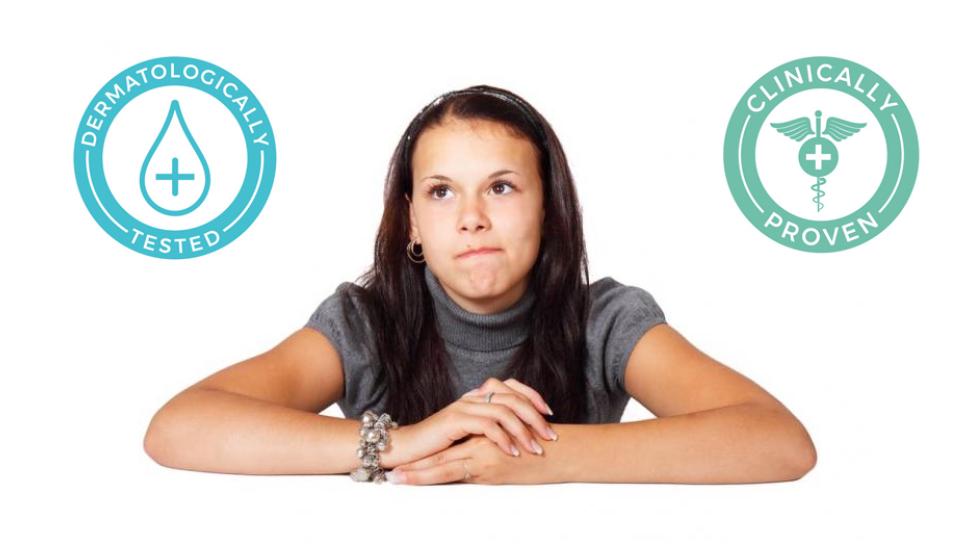“Is This Product ‘Dermatologist Tested’?”
“Is This Product ‘Dermatologist Tested’?”

“Is This Product ‘Dermatologist Tested’?” An understandable query for one who is trying to make sure the product is ‘approved’ by people in the know.
BUT, if the true nature of the question was really understood, there would be no question. Because both question and answer mean nothing.
Seeing the term ‘dermatologist tested’ on a label or in advertising should actually reduce the product’s credibility. It is a marketing ploy to infer that the product has actually been tested properly by qualified people. Not always so.
A company can ask a dermatologist to sample a particular product, one usually for hair, nails, or skin. It may be a cream that the doctor simply samples on the back of the hand. The doctor might say, “Oh, very nice! I like it.” The company can then go ahead and write ‘Dermatologist tested’ on the cream. After only a one-person test? One dermatologist? Is this what ‘tested’ means? Apparently yes. Pretty lax. Very scary.
When we read the term ‘dermatologist tested’ most of us would instead envision many dermatologists involved in the testing procedure. Trying it themselves, asking patients to try it, analyzing the results, determining the safely. Not so. One doctor is all it takes and it does not matter if liked or not. If the latter is the case, the company can add ‘not documented’ on the ad. It means that the doctor simply did not document the negativity.
Perhaps you might smile if you read instead…
‘Tested in nature over thousands of years.’
‘Your ancestors valued this product.’
‘Cleopatra would have approved.’
The ancients did the testing. Invented. Formulated. Experimented. Found out what worked, what didn’t. Made history. Today we learn from the ancient ‘cosmetic’. We try and often do make improvements. But we should not be allowed to be deceptive. ‘Dermatologist tested’ is a deception.
If one has a PhD, perhaps in history or law, and not dermatology, this doctor could still ‘test’ a product. No apparent knowledge of skin care is necessary for the ‘cosmetic’ being tested. The company can still claim, ‘Dermatologist tested’. This further demotes the term.
This is not intended to be an offense to dermatologists. It does not mean that all doctors agree to this permission. Their expertise should be more respected and proper testing of any product should be better regulated. If you have questions about a product go to someone personally, whom you respect, rather than believe all that you read on a label or in an ad. At this time of isolation, it may be difficult to see someone. If you see this type of advertising on online, think twice.
Beware also of the term ‘clinically proven’. It means one study was conducted and it can be just as lame as the one for ‘dermatologist tested’. It also means nothing.
Can we be so easily duped?
Maybe then. But not now. We are becoming so much smarter.